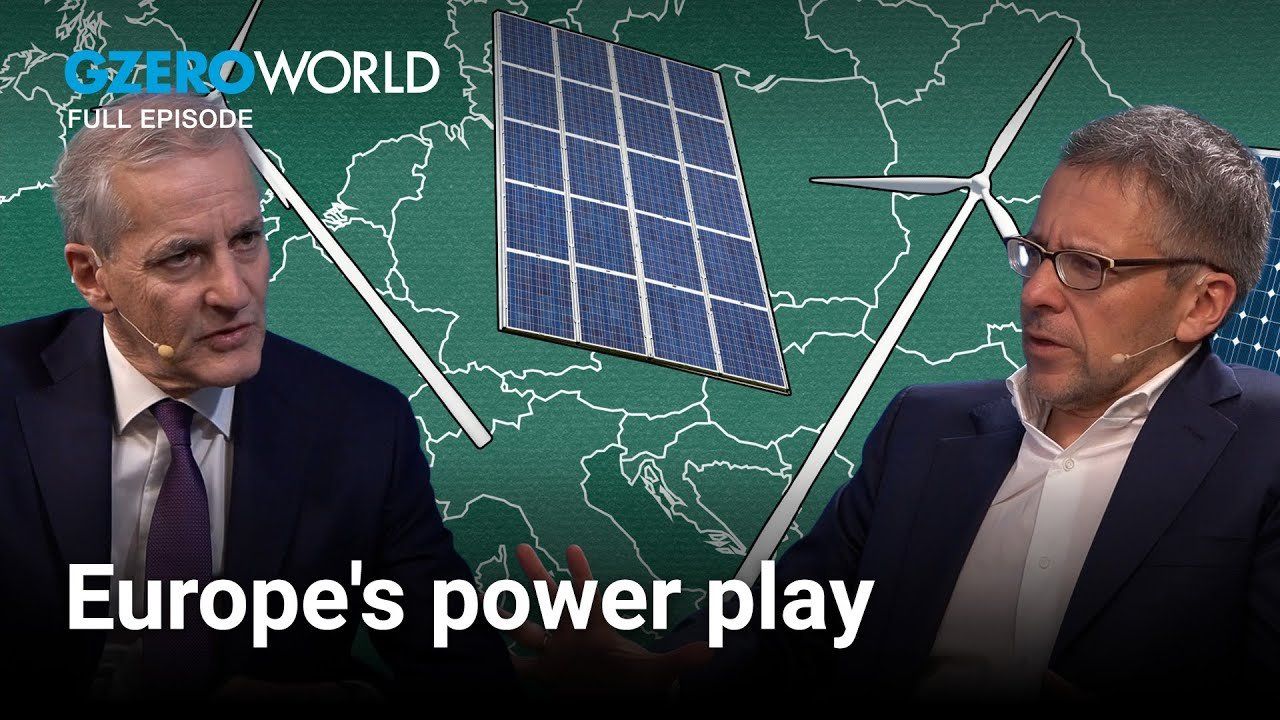GZERO World with Ian Bremmer
Solving Europe's energy crisis with Norway's power

Solving Europe's energy crisis with Norway's power | GZERO World with Ian Bremmer

Europe's energy security hinges on Norway and its transition from fossil fuels to renewable sources. That has big geopolitical implications for Ukraine and NATO.
On GZERO World, Ian Bremmer delves into Europe's urgent quest for energy independence and the broader geopolitical shifts that could redefine the continent's future. With the specter of reduced US support for Ukraine after November’s election, Europe's resilience, particularly in energy security and military capabilities, takes center stage. Norwegian Prime Minister Jonas Støre joins Ian to discuss Norway's critical role in this transition, emphasizing the need for a swift move from oil and gas to renewables, a monumental task that Europe and Norway are determined to undertake in a remarkably short timeframe. “Norway will transition out of oil and gas. When we pass 2030, there will be declining production, and then we want to see renewables transition upwards,” Prime Minister Jonas Støre tells Ian.
Their conversation delves into the ramifications of the US election outcome on NATO and Ukraine, underscoring Europe's precarious position should American support wane. The discussion reveals the continent's vulnerability to fuel crises and the imperative for a robust energy strategy that lessens dependency on external forces, notably by severing ties with Russian fossil fuels in response to the invasion of Ukraine. “Europe's ability to assist Kyiv on the battlefield will hinge not just on military capabilities but also Europe's own energy security,” Ian explains.
This is a moment of transformation for Europe as it navigates the complexities of energy transition and geopolitical uncertainties, highlighting the interconnectedness of sustainability, security, and solidarity in facing the challenges of the 21st century.
Chris, an Army veteran, started his Walmart journey over 25 years ago as an hourly associate. Today, he manages a Distribution Center and serves as a mentor, helping others navigate their own paths to success. At Walmart, associates have the opportunity to take advantage of the pathways, perks, and pay that come with the job — with or without a college degree. In fact, more than 75% of Walmart management started as hourly associates. Learn more about how over 130,000 associates were promoted into roles of greater responsibility and higher pay in FY25.
A ceasefire in Ukraine could be a strategic trap, leaving Kyiv vulnerable, former NATO ambassador Ivo Daalder warns on GZERO World.
In this Quick Take, Ian Bremmer warns that US military strikes on Iran are “looking increasingly imminent” as diplomacy appears to stall.